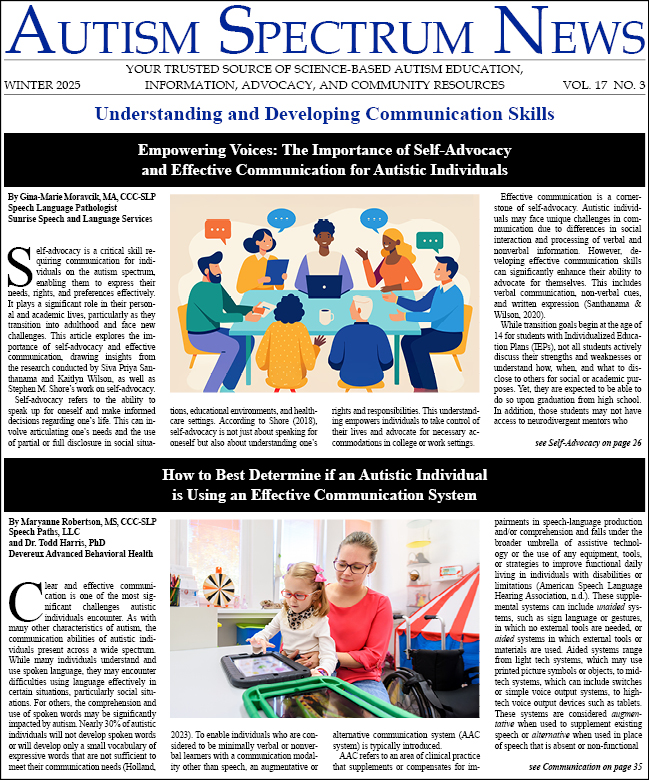-
The Complexities of Aging: Addressing the Unique Needs of Autistic Elders
Although there is little known about autism and aging, elders nonetheless need appropriate care now. Through learning about appropriate and intentional assessment and treatment, providers and allies can make a big difference, even in small ways. Although autistic traits are seen far back in...
-
Advocating for Empowerment: Navigating End-of-Life Care for the Aging Autistic Population
While history began documenting autism in children in the early 1900s, it was not until later in the century that autism became recognized as a distinct circumstance. The first generation of children diagnosed with autism is just now moving into older age. With aging brings social, physical, and...
-
Navigating the Later Stages of Life with Autism and Aging
Something that we as a community have yet to fully turn our attention to is the question of “how do we help our autistic elders thrive and live in dignity as they age?” As a late-diagnosed autistic woman, I am a pretty good example of what growing up and growing old without any...
-
Challenges for Autistic Adults in Navigating the Labyrinth of Healthcare
As I was fortunate enough to have had employment with good healthcare benefits, I did not have to face many of the challenges in navigating the healthcare system that autistics regularly encounter. Nevertheless, because of my involvement with the autism community over the past quarter century, not...
-
A Tale of Two Diagnoses: Older Adults and School-Age Children
When I was first diagnosed with Asperger Syndrome in late 2000 at 44 years, I was already a middle-aged adult. For most of my life, I had always felt that I was different from most people my age in a variety of ways, not to mention frequently reminded of such by others (usually in a very unpleasant...
-
Challenges in the Diagnosis and Treatment of Older Autistic Women
Autism has a unique neurological structure with a wide variety of expressions. This diversity of strengths, challenges, and experiences is why autism is considered a spectrum disorder. It’s also what makes it challenging to diagnose and treat because the myriad of symptoms manifested in any given...
-
Autism, Technology, and Older Adults: Facing an Unexpected Set of Challenges
As an engineer who has been involved with technology his entire life, and an older adult on the autism spectrum, I have always felt that, in my case, there was always a strong connection between the two. Although the notion that autistics are generally inclined towards technology has become a...
-
Older Adults on the Spectrum Face a Variety and Number of Major Challenges
In spite of being fortunate enough to have avoided many of the challenges presented by aging on the autism spectrum, I nevertheless feel that I am in a position to write about these as an older adult on the spectrum who recently became a senior citizen. I was already a middle-aged adult (age 44) at...
-
Supporting Pioneers: Building Better Networks for Adults Aging with Autism
Although traditionally understood as a childhood condition, autism is a lifelong disorder that presents in both children and adults. Many of the children with this disorder who were born during the last century and who are now reaching mid- and later-life did not receive formal diagnoses of autism....
-
Best Practices in Support of Aging Adults with Autism
The DSM V which was released to the public in May, 2013, took the controversial decision to consolidate the diagnosis of Asperger Syndrome, or High Functioning Autism (HFA), under the umbrella of Autism Spectrum Disorder (ASD). The particularism of Asperger Syndrome had provided a framework with...






